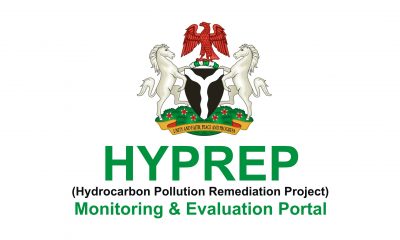Niger Delta
Empowerment: Four N’Delta States Employ 10,000 Youth
Facts have emerged that no
fewer than 10,000 youths had been employed in Niger-Delta States of Bayelsa, Delta, Edo and Rivers in the last two years under government empowerment scheme.
The Secretary to the NPC, Mr Bassey Akpanyung disclosed this at a National Level Stakeholders’ Validation Workshop on the Informal Sector Study of the four states.
Akpanyung said that the 10,000 youths were employed under the State Employment and Expenditure for Results (SEEFOR) project implemented in the four states.
“I am pleased to inform you that barely two years into the implementation of SEEFOR Project, the socio-economic activities of the SEEFOR States have witnessed some improvement with the employment of over 10,000 youths under the small public works scheme of the project while over 121,000 people are accessing other growth enhancing services under numerous informal sector initiatives in the targeted communities of the project.“
The secretary said that the study on the four SEEFOR states would provide information on the characteristics and viability of the informal sector.
He said that the expectation was that the study would also help the government in taking sound and evidence-based policy decisions, particularly in the SEEFOR states.
In addition, Akpanyung said that the study would also provide the various governments of the SEEFOR states with the opportunity to explore other alternative sources of generating revenue internally.
The official said that the benefiting states would be able to generate internally through adequate tax legislations, thereby blocking all forms of financial leakages through the project.
According to him, the states will be able to boost their economy with the project, especially with the dwindling price of oil.
“A cursory look at the outcome of the study shows that the informal sector still remains a major contributor to the GDP and job creation in the four beneficiary states of the Niger Delta region.
“The sector’s contribution to Gross Domestic Product (GDP) averaged 34.9 per cent. “This result is also consistent with the 37.7 per cent recorded outcome of the pilot study carried out by the NPC – NISER (Nigerian Institute for Social and Economic Research).
“With the support from the UN Development Programme (UNDP) on the informal sector in 2014, covering six states drawn from the six geo-political zones of the country.”
According to him, the implication of the report is that the informal sector remains very dominant.
He urged the respective states to introduce policies aimed at further formalising the sector, especially at a time when revenue receipts from oil were very low.
Akpanyung, however, said that the current administration was fully committed to rejuvenating and improving the operations of the informal sector at the national and sub-national levels.
He said that recent pronouncements made by President Muhammdu Buhari, indicated that the new administration had favourable disposition to invigorating the informal sector for job creation.
“It is hoped that the subnational governments, the private sector and indeed the development partners will join with government in undertaking this important task,“ the secretary said.
Earlier, Mr Tunde Lawal, the National Project Coordinator, SEEFOR Project, said that the objective of the workshop was to share the key findings of the revised draft report on the informal sector study.
Lawal said that the workshop was also aimed at deepening the knowledge about the characteristics and operations of the important sector in the SEEFOR project participating states.
Niger Delta
Bishop Mocks Fake Prophecy Seekers … As Priests Relive Challenges At Ordination Ceremony
Niger Delta
Delta Leverages On Extensive River Networks To Drive Blue Economy
Niger Delta
C’River Hands Over Rubber Plantation to Private Company
-

 Business7 hours ago
Business7 hours agoReplace Nipa Palms With Mangroove In Ogoni, Group Urges FG, HYPREP
-

 News4 hours ago
News4 hours agoRivers PDP Debunks Sale Of LGA Election Forms
-
Niger Delta7 hours ago
C’River Hands Over Rubber Plantation to Private Company
-
News6 hours ago
FG Renames University of Maiduguri After Buhari …As Tinubu Pours Encomiums On Late President
-

 Business7 hours ago
Business7 hours agoIndustry Leaders Defend Local Content, … Rally Behind NCDMB
-

 Women4 hours ago
Women4 hours agoWhat To Know About Fufu, Loi Loi
-
Niger Delta7 hours ago
Delta Leverages On Extensive River Networks To Drive Blue Economy
-
Rivers10 hours ago
Macobarb CEO Cries Out, Says No Indigenous Contractor Can Win Case Against NLNG Or Oil Majors in Nigerian Courts …As Justice Nwogu Throws Out Macobarb’s N5.74bn Claim

